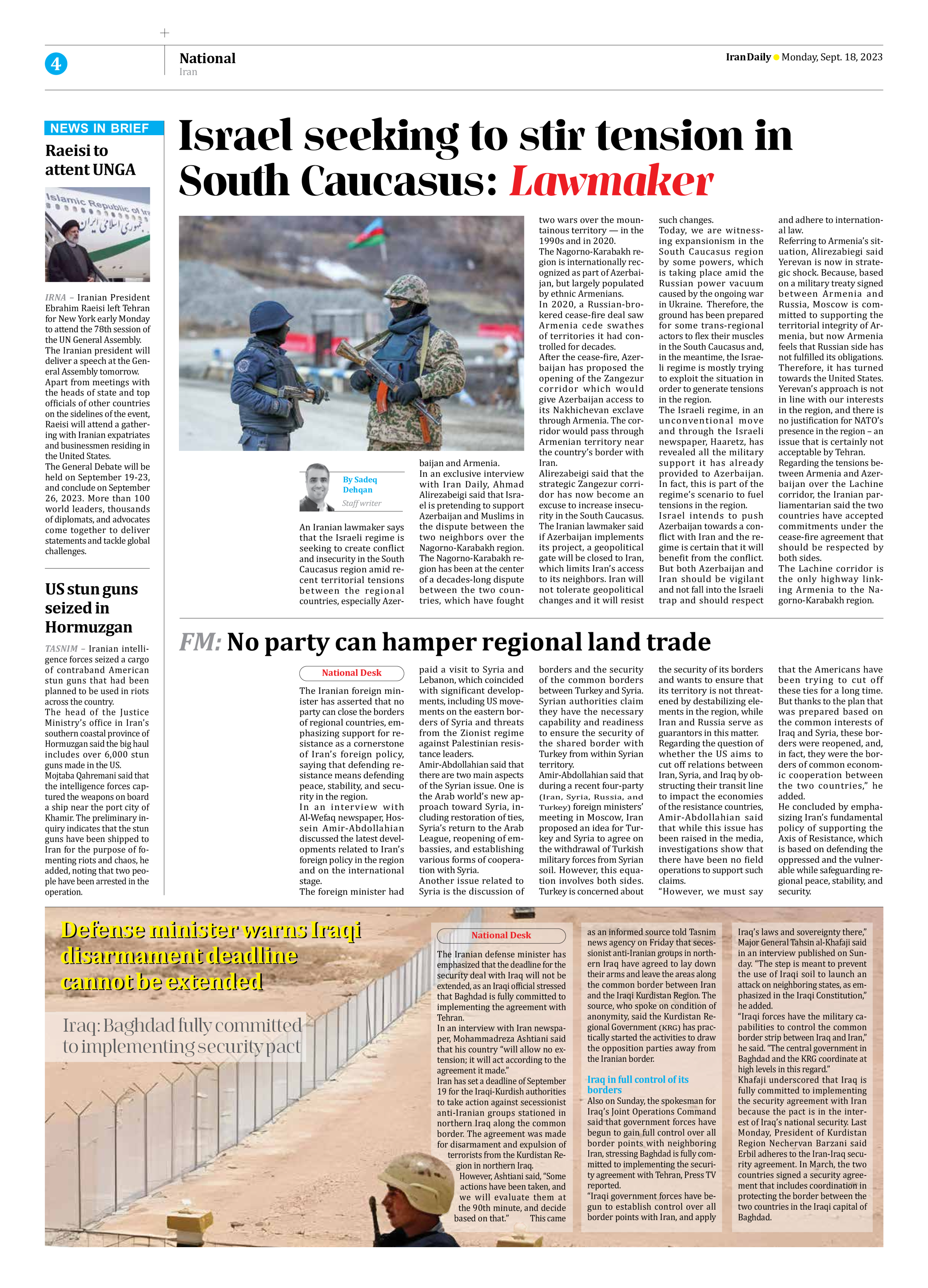
FM: No party can hamper regional land trade
The Iranian foreign minister has asserted that no party can close the borders of regional countries, emphasizing support for resistance as a cornerstone of Iran’s foreign policy, saying that defending resistance means defending peace, stability, and security in the region.
In an interview with Al-Wefaq newspaper, Hossein Amir-Abdollahian discussed the latest developments related to Iran’s foreign policy in the region and on the international stage.
The foreign minister had paid a visit to Syria and Lebanon, which coincided with significant developments, including US movements on the eastern borders of Syria and threats from the Zionist regime against Palestinian resistance leaders.
Amir-Abdollahian said that there are two main aspects of the Syrian issue. One is the Arab world’s new approach toward Syria, including restoration of ties, Syria’s return to the Arab League, reopening of embassies, and establishing various forms of cooperation with Syria.
Another issue related to Syria is the discussion of borders and the security of the common borders between Turkey and Syria. Syrian authorities claim they have the necessary capability and readiness to ensure the security of the shared border with Turkey from within Syrian territory.
Amir-Abdollahian said that during a recent four-party (Iran, Syria, Russia, and Turkey) foreign ministers’ meeting in Moscow, Iran proposed an idea for Turkey and Syria to agree on the withdrawal of Turkish military forces from Syrian soil. However, this equation involves both sides. Turkey is concerned about the security of its borders and wants to ensure that its territory is not threatened by destabilizing elements in the region, while Iran and Russia serve as guarantors in this matter.
Regarding the question of whether the US aims to cut off relations between Iran, Syria, and Iraq by obstructing their transit line to impact the economies of the resistance countries, Amir-Abdollahian said that while this issue has been raised in the media, investigations show that there have been no field operations to support such claims.
“However, we must say that the Americans have been trying to cut off these ties for a long time. But thanks to the plan that was prepared based on the common interests of Iraq and Syria, these borders were reopened, and, in fact, they were the borders of common economic cooperation between the two countries,” he
added.
He concluded by emphasizing Iran’s fundamental policy of supporting the Axis of Resistance, which is based on defending the oppressed and the vulnerable while safeguarding regional peace, stability, and security.







